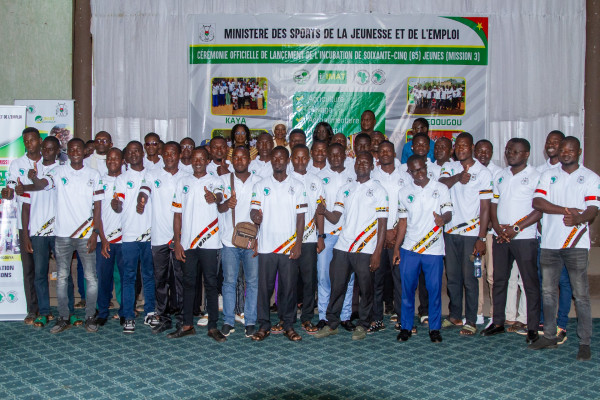
Burkina Faso has launched the third phase of a transformative project designed to equip rural youth with the skills and resources needed to build sustainable businesses.
The initiative, officially titled the Project to Support Youth Employment and Skills Development in Rural Areas (PADEJ-MR), was unveiled on July 15, 2025, in the capital, Ouagadougou, in partnership with the African Development Bank (ADB).
The launch ceremony was attended by Franceline Kaboré, representing the Minister of Sports, Youth and Employment, alongside Mouna Diawara, the ADB’s Head of Operations. Both underscored the program’s significance for tackling rural unemployment and fostering inclusive economic growth.
PADEJ-MR aims to boost youth resilience and economic empowerment through entrepreneurship. The project is backed by a total budget of €13.62 million, of which €12.25 million is financed through an ADB grant. It provides beneficiaries with practical training in financial literacy, business planning, risk management, and personalized technical assistance.
The program targets promising economic sectors such as agriculture, agribusiness, crafts, services, and digital technology. In its current phase, 65 young entrepreneurs from four regions across Burkina Faso are receiving tailored support to develop fundable business plans.
Franceline Kaboré highlighted the project’s alignment with national priorities, stating: “Youth entrepreneurship is a national priority enshrined in the Burkinabe government’s strategic vision.”
Mouna Diawara echoed this sentiment, adding, “The Rural Youth Employment and Skills Development Support Project is a concrete and integrated response to the problem of youth unemployment in rural areas. The African Development Bank is ready to continue its support to Burkina Faso in its economic transformation efforts, with particular attention to opportunities for young people and women.”
Representing the program’s beneficiaries, Sévérine Lankouandé expressed deep appreciation for the initiative. She noted that the training and resources provided have already enabled many in the first cohort to launch high-impact businesses, offering hope for a more prosperous and self-reliant future for rural communities.



